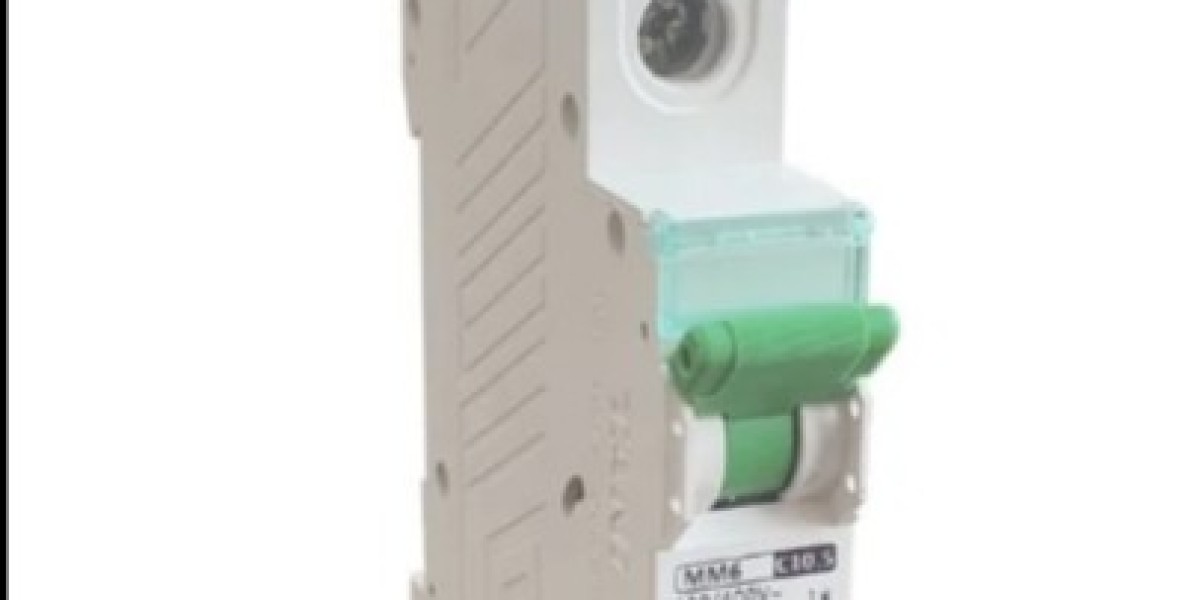Tackling a DIY electrical project can be both rewarding and cost-effective, but it also comes with its own set of challenges and risks. One of the most critical components of your home’s electrical system is the circuit breaker. Responsible for controlling and protecting your electrical circuits, the circuit breaker prevents overloads, short circuits, and potential electrical fires. While some electrical projects can be handled by a homeowner, knowing when to replace or upgrade your circuit breaker is crucial for ensuring both safety and efficiency.
In this blog, we'll explore the key signs that indicate it may be time to replace or upgrade your circuit breaker and what to keep in mind when doing so.
1. Frequent Circuit Breaker Tripping
One of the most common signs that your circuit breaker may need replacement or an upgrade is frequent tripping. Circuit breakers are designed to trip when they detect an overload or short circuit to prevent damage to your electrical system. While occasional tripping is normal, especially when too many appliances are in use, frequent tripping is a red flag.
Frequent trips often indicate that your circuit breaker is struggling to handle the load, which could be due to:
Increased electrical demand: As homes evolve to include more devices, appliances, and technology, older circuit breakers may not be equipped to handle the increased load.
Worn-out components: Over time, the internal components of a circuit breaker can degrade, reducing its ability to effectively manage the electrical flow.
If your circuit breaker trips regularly, it’s time to consider upgrading to a higher-capacity breaker or replacing a malfunctioning one. This will ensure your home’s electrical system can handle the load without compromising safety.
2. Your Home’s Electrical Panel Is Outdated
Older homes, especially those built before the 1980s, often have outdated electrical panels and circuit breakers that may not meet modern safety standards. If you live in an older home, you might have a circuit breaker panel that cannot adequately support today’s electrical needs. Modern households use a wide range of high-power appliances, including air conditioners, refrigerators, microwaves, and entertainment systems—all of which place a significant demand on your electrical system.
Signs that your electrical panel is outdated include:
Fuses instead of breakers: Some older homes still rely on fuse boxes rather than circuit breakers, which can be less efficient and more difficult to maintain.
Insufficient amps: Older homes may have panels that supply only 60-100 amps, while modern homes typically require 150-200 amps.
Upgrading your circuit breaker panel to meet current electrical demands not only enhances safety but also ensures that your home runs more efficiently. This is especially important if you plan on adding new appliances or devices to your home.
3. Burning Smells or Scorch Marks
A burning smell coming from your circuit breaker panel is a serious sign that something is wrong. This could indicate that your breaker is overheating or that there is faulty wiring inside the panel. Scorch marks around the breaker are another indication of overheating and potential electrical failure.
If you detect any burning smells or notice physical damage, you should immediately turn off the power and contact an electrician. In many cases, this issue requires replacing the faulty breaker and possibly upgrading your electrical panel to prevent future hazards.
4. Circuit Breaker Feels Hot to the Touch
Circuit breakers should never feel hot. If you touch your circuit breaker panel and feel an unusual amount of heat, it’s a sign that the breaker is either overloaded or malfunctioning. A hot breaker can lead to dangerous electrical arcing, where electricity jumps between wires, causing sparks that can ignite fires.
An overheating breaker should be replaced immediately to avoid fire risks. Additionally, if you consistently experience hot breakers, it may be time to upgrade to a higher-capacity panel that can better handle the demands of your home’s electrical usage.
5. Renovations or Additions to Your Home
If you’re planning a major renovation or adding square footage to your home, it’s crucial to consider upgrading your circuit breaker. New rooms often require additional lighting, outlets, and appliances, which can overload an existing electrical panel if it’s not upgraded.
For example, if you're converting a basement into a home theater or adding a garage, the additional electrical load from lights, heating, and powered tools will demand a higher-capacity breaker. In many cases, this involves installing additional circuits or upgrading the panel to support a higher amp rating.
Planning an upgrade ahead of your renovation ensures that your electrical system can handle the increased load safely, preventing future issues or costly repairs.
6. You’re Installing High-Powered Appliances
Installing high-powered appliances like a new HVAC system, water heater, or electric car charging station may require you to upgrade or replace your circuit breaker. These appliances draw a significant amount of power, which older electrical panels may not be able to handle.
If your circuit breaker isn’t designed to manage high loads, it can result in frequent tripping, overheating, and possibly electrical damage to the appliances. To ensure these systems function properly and safely, consider upgrading to a breaker with higher amp capacity or adding dedicated circuits for high-powered devices.
7. Preventative Maintenance and Future-Proofing
Even if your circuit breaker seems to be functioning well, upgrading it as part of a preventative maintenance strategy can save you time and money in the long run. Electrical codes and safety standards are continually updated, and older breakers may not offer the same level of protection as newer models.
Replacing or upgrading your circuit breaker now, rather than waiting for a failure, can future-proof your home’s electrical system. It’s especially important if you plan on integrating smart home technology, installing solar panels, or adding more energy-intensive devices down the line.
Conclusion
Replacing or upgrading your circuit breaker may seem like a daunting task, but it’s a necessary step in keeping your home’s electrical system safe and functional. Whether your breaker is tripping frequently, your panel is outdated, or you’re planning major renovations, upgrading your circuit breaker can prevent dangerous electrical issues and improve the efficiency of your home.
While some electrical projects are DIY-friendly, working with circuit breakers often requires the expertise of a licensed electrician. It’s important to ensure that all upgrades and replacements meet local electrical codes and standards. By knowing when to replace or upgrade your circuit breaker, you can protect your home from potential electrical hazards and ensure that it’s equipped to handle modern electrical demands.



